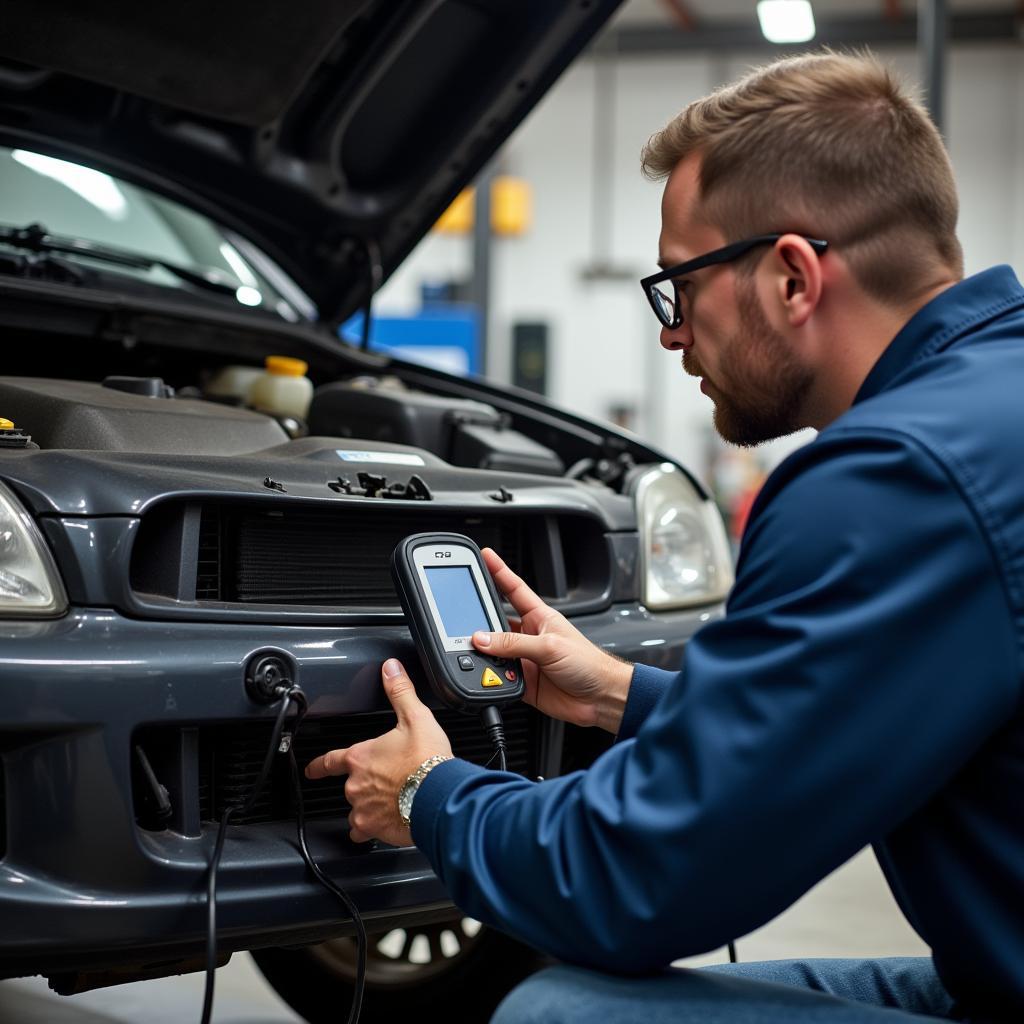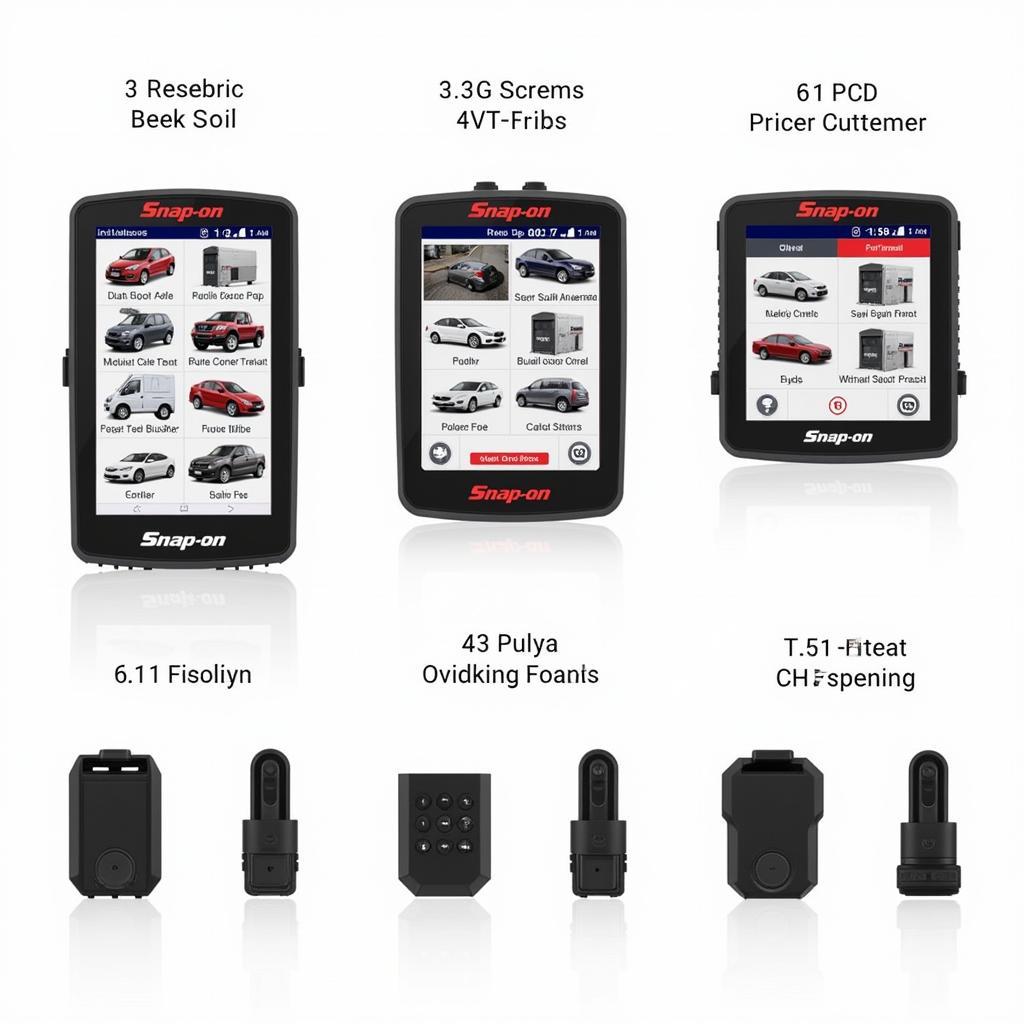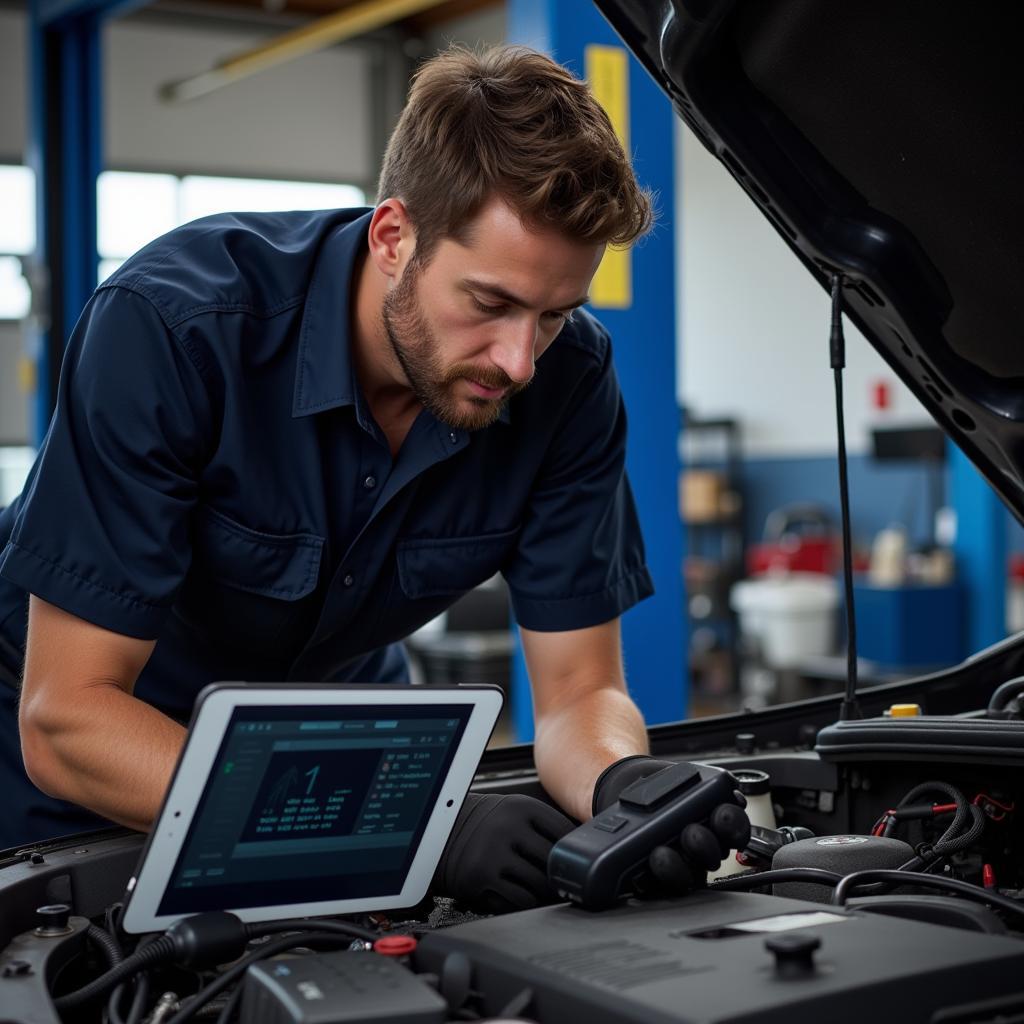A Car Check Engine Scanner is an essential tool for any car owner or mechanic. It can help you quickly diagnose and fix problems with your vehicle. This article will teach you everything you need to know about car check engine scanners, from how they work to how to choose the right one for your needs.
Understanding the Check Engine Light and Diagnostic Trouble Codes (DTCs)
Before delving into scanners, it’s crucial to understand what triggers the dreaded check engine light. Your car’s computer, also known as the Engine Control Unit (ECU), constantly monitors various systems. When it detects an issue, it illuminates the check engine light and stores a corresponding Diagnostic Trouble Code (DTC) in its memory.
DTCs are alphanumeric codes that provide clues about the nature of the problem. For instance, a code like “P0420” might indicate a problem with the catalytic converter. However, DTCs alone don’t offer a complete diagnosis. They are starting points that guide you toward further investigation.
What is a Car Check Engine Scanner?
A car check engine scanner, also known as an OBD2 scanner, is a device that connects to your car’s OBD2 port. This port is typically located under the dashboard on the driver’s side. Once connected, the scanner can read the DTCs stored in your car’s ECU, providing you with valuable information about the problem.
There are many different types of car check engine scanners available on the market, from basic code readers to professional-grade scan tools. The type of scanner you need will depend on your budget and your level of expertise.
 Mechanic Using OBD2 Scanner on a Vehicle
Mechanic Using OBD2 Scanner on a Vehicle
Types of Car Check Engine Scanners
1. Basic Code Readers
Basic code readers are the most affordable type of car check engine scanner. They can read and clear basic DTCs, but they don’t provide much other information. If you’re a car owner who just wants to know why your check engine light is on, a basic code reader is a good option.
2. Advanced Code Readers
For those seeking more detailed insights, advanced code readers offer additional features. They can display live data streams from your car’s sensors, such as engine speed, coolant temperature, and oxygen sensor readings. This information can be helpful for diagnosing intermittent problems or monitoring specific parameters.
3. Professional-Grade Scan Tools
Professional-grade scan tools are the most expensive and feature-rich type of car check engine scanner. They can do everything that basic and advanced code readers can do, plus much more. For example, they can access manufacturer-specific DTCs, perform bi-directional tests (sending commands to the car’s ECU), and program keys and modules.
Choosing the Right Car Check Engine Scanner
When choosing a car check engine scanner, you should consider the following factors:
- Your budget: Car check engine scanners can range in price from around $20 to over $1,000.
- Your level of expertise: If you’re a beginner, you won’t need a professional-grade scan tool. A basic code reader or an advanced code reader will be sufficient.
- The features you need: Consider what you’ll be using the scanner for. If you only need to read and clear DTCs, a basic code reader will suffice. However, if you want to be able to do more advanced diagnostics, you’ll need a more advanced scanner.
- Compatibility: Ensure the scanner you choose is compatible with your vehicle’s make, model, and year. Some scanners are designed for specific car brands or models.
Benefits of Using a Car Check Engine Scanner
Using a car check engine scanner offers several benefits:
- Early Problem Detection: By regularly scanning your car, you can detect problems early on, potentially preventing costly repairs down the line.
- DIY Diagnostics: Scanners empower you to diagnose car problems yourself, reducing reliance on mechanics and saving money.
- Informed Repair Decisions: Armed with DTCs and other data, you can make informed decisions about necessary repairs and avoid unnecessary expenses.
- Improved Vehicle Performance: By addressing issues promptly, you can maintain optimal vehicle performance and fuel efficiency.
“Investing in a quality car check engine scanner is like having a personal mechanic at your fingertips. It empowers you to understand your vehicle better and stay ahead of potential issues,” says John Smith, a seasoned automotive engineer at ScanToolUS.
Conclusion
A car check engine scanner is a valuable tool for any car owner or mechanic. It can help you save time and money by allowing you to quickly diagnose and fix car problems. By understanding the different types of scanners available and the factors to consider when choosing one, you can find the right scanner for your needs.
Need expert help with car diagnostics or finding the perfect scanner? Don’t hesitate to reach out! Contact ScanToolUS at +1 (641) 206-8880 or visit our office at 1615 S Laramie Ave, Cicero, IL 60804, USA. We are always here to help you get back on the road safely.
FAQs
1. Will a car check engine scanner work on any car?
While most modern cars (1996 and newer) use the OBD2 standard, compatibility can vary. It’s essential to choose a scanner that specifically supports your car’s make, model, and year.
2. Can I clear the check engine light myself with a scanner?
Yes, most car check engine scanners allow you to clear DTCs and turn off the check engine light. However, it’s important to address the underlying problem before clearing the codes.
3. Is it worth buying a cheap car check engine scanner?
While budget-friendly options can be useful for reading basic codes, investing in a slightly more advanced scanner often provides more features and better value in the long run. Consider your diagnostic needs and budget when making a decision.
4. Can a car check engine scanner diagnose all car problems?
No, it primarily focuses on issues related to the engine and emissions systems. Other problems, such as mechanical or electrical faults, may require different diagnostic tools and expertise.
5. Where can I learn more about specific DTCs?
You can find detailed information about specific DTCs in your car’s repair manual or online resources dedicated to automotive diagnostics.


